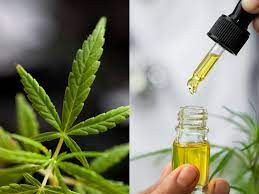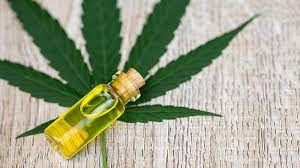Introduction
Crafting a detailed and unique 1400-word blog about “All About CBD Strength” for a Canadian audience requires integrating information from various sources. This comprehensive guide will cover several key aspects, including the general understanding of CBD strength, how to determine the right strength for individual needs, and considerations when choosing CBD products in Canada.
CBD oil, extracted from the hemp plant, is recognized for its potential health benefits, including relief from stress, anxiety, and chronic pain, without the psychoactive effects of THC. The Canadian market for CBD oil is burgeoning, with its value expected to reach $2.8 billion in 2023.
Understanding CBD Strength

CBD strength refers to the concentration of cannabidiol (CBD) in a product. It is typically measured in milligrams (mg) and indicates the amount of CBD contained in a given product. The strength or potency of CBD oil is a key factor that determines its therapeutic efficacy. For instance, a 300mg CBD oil is less potent than a 600mg CBD oil if both are in the same volume of liquid.
1. Measuring CBD Strength
The potency of CBD is usually indicated on the product label, but it can be confusing because it depends on both the total amount of CBD and the volume of the product. For example, 300 mg of CBD in a 15 mL bottle is twice as potent as 300 mg of CBD in a 30 mL bottle. Therefore, when determining the strength, it’s crucial to consider the total CBD content in relation to the size of the container.
2. The Importance of Understanding CBD Strength
Understanding the strength of CBD is crucial for several reasons:
- Dosage Accuracy: Knowing the strength helps in administering accurate dosages. This is particularly important for achieving desired therapeutic effects and avoiding side effects.
- Cost-Effectiveness: Higher-strength products can be more cost-effective. However, they might be unnecessary for users with mild conditions or those new to CBD.
- Individual Tolerance: Everyone’s body reacts differently to CBD. Some may need higher strengths due to higher tolerance or more severe symptoms, while others may do well with lower strengths.
- Condition-Specific Needs: The strength required can vary depending on the condition being treated. Chronic pain, for instance, might require a higher strength compared to mild anxiety.
3. Calculating the Strength of CBD Oil
A simple calculation can be used to determine the strength of CBD oil:
Amount of CBD in mg÷Bottle size in mL=Strength in mg/mLAmount of CBD in mg÷Bottle size in mL=Strength in mg/mL
For example, a 600 mg CBD oil in a 15 mL bottle is more potent than the same amount in a 30 mL bottle. The strengths are generally categorized as low (below 5 mg/mL), medium (between 15 and 30 mg/mL), high (between 30 and 60 mg/mL), and ultra-high (above 60 mg/mL)
Legal Considerations in Canada

In Canada, CBD products became legal with the legalization of recreational cannabis in 2018. However, companies producing, processing, or selling CBD must obtain a government license. Sales are limited to within individual provinces, and inter-provincial transport is restricted. Additionally, importing or exporting CBD products is prohibited.
Despite these regulations, a sizable unregulated market exists, often offering products of questionable quality. As of July 2022, Health Canada’s advisory committee reported that CBD is safe for adults and dogs, hinting at potential future relaxation of some restrictions.
Factors Affecting CBD Strength and Quality in Canada
Understanding the various factors that affect the strength and quality of CBD products is crucial for Canadian consumers. Here’s a detailed look at what influences CBD strength, the types of CBD products available in Canada, how to choose the right CBD strength, and considerations regarding the quality, safety, and cost of these products.
1. Factors Affecting CBD Strength
- Extraction Method: The method used to extract CBD from hemp plants significantly impacts its potency and purity. CO2 and ethanol extraction methods are commonly used, each offering different benefits in terms of the quality of the final product.
- Hemp Source: The quality of the hemp plant itself plays a crucial role. High-quality hemp, grown under ideal conditions and without harmful pesticides or herbicides, typically yields a more potent CBD oil.
2. Types of CBD Products in Canada
- Canadian brands like CBDNorth offer a diverse range of products, including full-spectrum CBD oil, THC-free CBD oil, and specialized products like CBN Sleep Oil. These products vary in strength, with options ranging from 500 mg to 2400 mg.
- Full-Spectrum CBD Oil: This type contains multiple cannabinoids and terpenes. It’s believed to be more potent than pure CBD due to the entourage effect, where all compounds work synergistically.
3. Choosing the Right CBD Strength
- For new users, it’s recommended to start with a lower-strength CBD oil and gradually adjust based on personal tolerance and the severity of symptoms.
- Dosage Guidelines: Dosage can be calculated based on body weight, with a general guideline of 1-6 mg of CBD for every 10 pounds, depending on the severity of symptoms.
4. Quality and Safety of CBD Products
- Third-Party Lab Testing: Reputable brands ensure their products undergo rigorous testing for safety, potency, and purity, often reflected in third-party lab test results.
- Consumer Trust: It’s vital to choose products from companies that have positive customer reviews and a good reputation in the market.
5. Price and Accessibility
- The cost of CBD oil in Canada varies, but high-quality products typically range from $50 to $80 per bottle.
- Online Purchasing Considerations: When buying online, factors like shipping times, return policies, and customer service are important to ensure a satisfactory purchase experience.
Benefits of THC-Free CBD Oil
THC-free CBD oil offers several potential benefits, especially for those who are sensitive to THC or must avoid it due to legal or professional reasons. Here are some key benefits:
- No Psychoactive Effects: THC-free CBD oil provides the advantages of CBD without the psychoactive effects associated with THC. This means users can enjoy the benefits of CBD without experiencing the ‘high’ that THC produces.
- Legal Compliance: In regions where THC is restricted or illegal, THC-free CBD oil is often a compliant choice, allowing users to legally access the benefits of CBD.
- Suitable for Sensitive Individuals: People who are sensitive to THC, either due to personal preference or due to adverse reactions, can use THC-free CBD oil without concerns.
- Wider Acceptance: THC-free products are generally more accepted in workplaces and other environments where drug testing occurs, as they are unlikely to trigger positive results for cannabis use.
- Potential Health Benefits: Like full-spectrum CBD, THC-free CBD oil may offer various health benefits, such as relief from anxiety, pain, and inflammation. It’s often chosen for its potential therapeutic effects on various conditions.
- Focus on CBD Benefits: Users can focus solely on the benefits of CBD, which has been studied for its anti-inflammatory, anxiolytic, and neuroprotective properties, among others.
- Reduced Risk of Side Effects: Without THC, the risk of certain side effects like anxiety or paranoia, which some users experience with THC, is minimized.
It’s important to note that while THC-free CBD oil offers these benefits, some research suggests that the presence of THC, even in trace amounts, can enhance the efficacy of CBD through the entourage effect. Therefore, the choice between THC-free and full-spectrum CBD oil should be based on individual needs and legal considerations.
Conclusion
Understanding CBD strength is essential for Canadians seeking to leverage the therapeutic benefits of CBD oil. By considering potency, quality, and legal guidelines, users can make informed choices to suit their individual needs and preferences.
This blog offers a detailed and unique insight into CBD strength, tailored specifically for the Canadian market, drawing from multiple credible sources to provide a thorough understanding of the topic.
